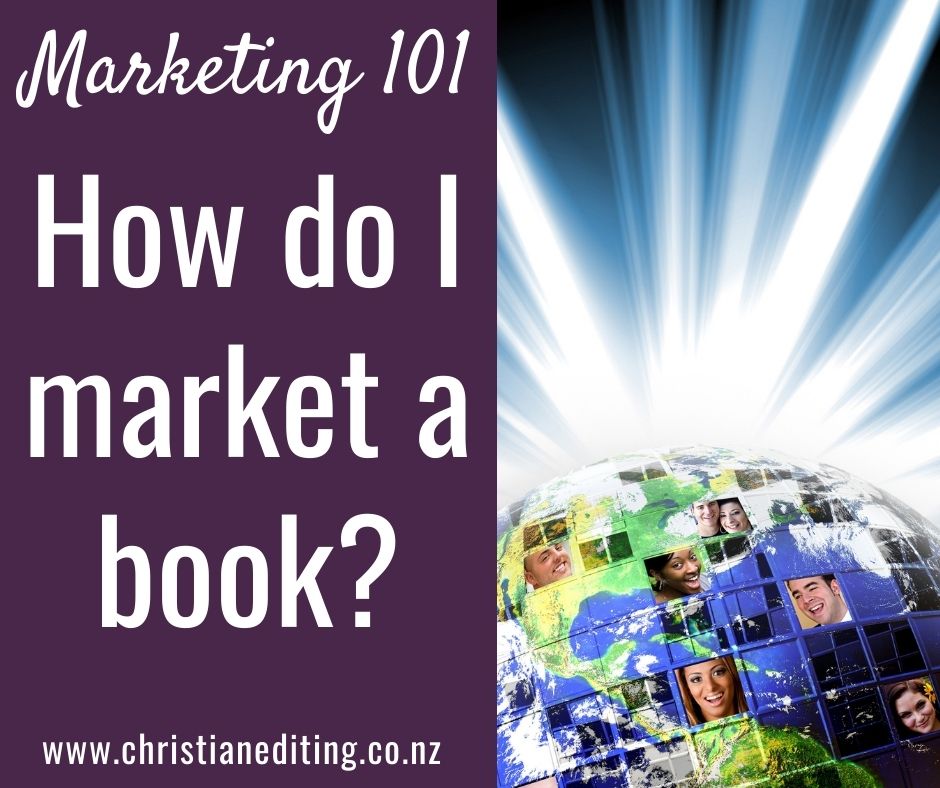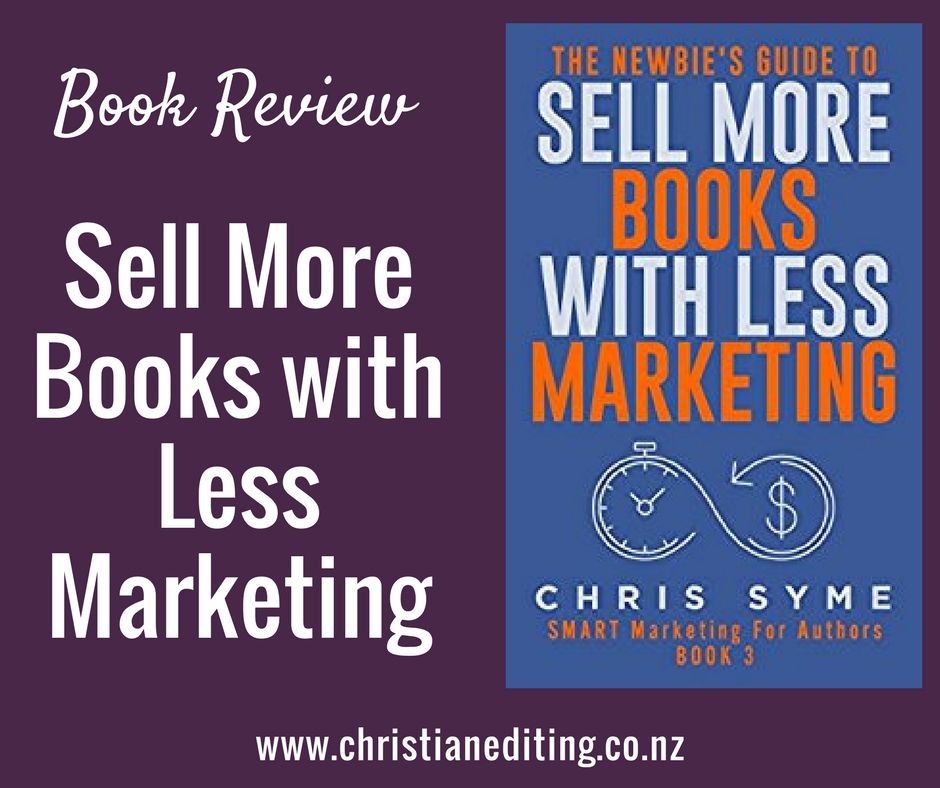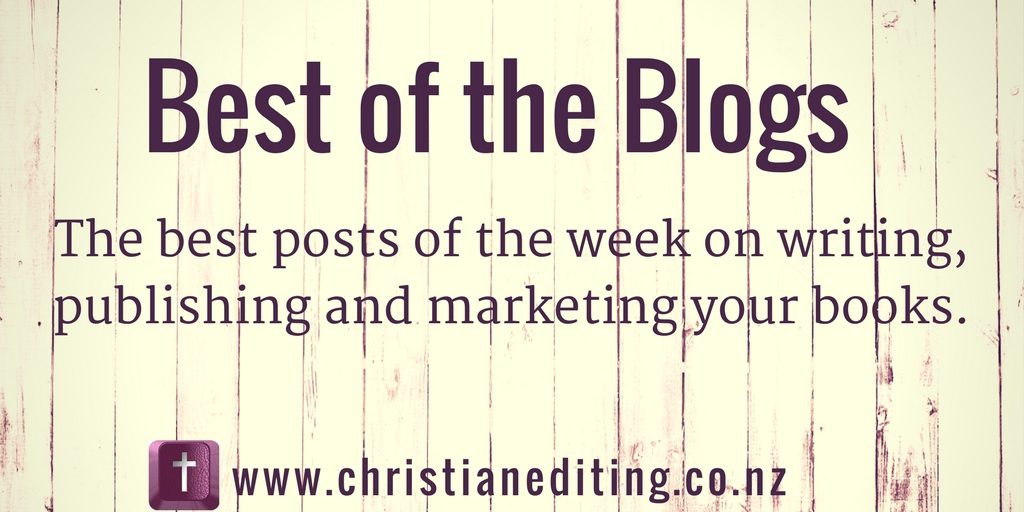This is one of the most common questions I see in Christian author groups.
Unfortunately, it’s also one of the hardest to answer.
Why? Because the question is too vague.
It’s like asking “what should I buy?” If I’m hungry, I should buy food. If I’m cold, I should buy clothes. if I’m bored, I should buy a book. No one can give a helpful answer without more information.
Top Tip: It’s best to ask specific questions, especially in Facebook groups.
The other issue is that the question is usually asked by someone who has already published their book. Most marketing happens before the book is published. Yes, you can advertise a book after it’s been published, but the success of post-publication advertising will largely depend on how well the early big-picture steps were completed.
Here are my suggested steps to marketing a book:
1. Write an excellent book.
Your book needs to be of the same standard as a book released by a traditional publisher, because this is the standard readers expect. Your book should also be written in an accepted genre, because that shows there is a group of readers who want to buy books like yours.
Click here to read about understanding genre.
2. Build your author website.
All authors need a website, an online home base that they can use to attract potential readers and even to sell books from. Recent events have shown (yet again) how easy it is to lose followers from a third-party website or social media network. Instead, build your website on a self-hosted WordPress site to limit the risk of losing your site.
Click here to read more about author websites.
3. Set up social media accounts on relevant networks.
While it’s unwise to build an entire platform on social media, it is worthwhile claiming your author name on the main social media networks (i.e. the networks your target readers use) and pointing followers towards your website.
Click here to read more about social media.
4. Work with an editor and proofreader.
Revise and self-edit your book until it is the best you can make it. Then use at least one paid editor to provide professional external feedback.
Click here to read why self-editing is important.
- A developmental editor will help clarify your overall story, and help you fix plot, character, or structure problems.
- A line editor will help polish your work.
- A copyeditor will ensure the writing is consistent with the relevant style guide.
- A proofreader provides on final check to ensure the manuscript is ready to publish.
Click here to read more about the cost of editing.
5. Set up an email list and offer a reader magnet.
An email list is your direct line to your fans. These are the people who will preorder your books and buy your new releases. The bigger and more engaged your list, the less “hard sell” you have to do.
Click here to read more about email lists.
6. Consider your path to publishing
Click here to read more about the paths to publishing.
Do you want to publish with a major traditional publisher? If so, your next step is to find a literary agent who sells manuscripts to your preferred publisher.
Do you want to work with a small press? Now is the time to submit.
Do you plan to self-publish? Make sure you’re self-publishing, not working with a vanity publisher (who won’t market your book, and probably won’t even edit it).
Click here to find out how to find a literary agent.
7. Create an ARC team.
An ARC is an Advance Reader Copy or Advance Review Copy. Create a team of people who will receive the pre-proofed version of your book, read it before publication, and review it on release date (or soon after). Reviews provide social proof for new-to-you readers and encourages them to try your book.
8. Hire an excellent cover designer.
If there’s one thing that’s more important than excellent writing and editing, it’s cover design. The cover is the first thing a new reader sees, so it needs to fit the genre, and attract your target readers.
9. Write a compelling book description.
When a potential customer sees your book, the first thing they see is the cover. If the cover looks appealing, the next thing they will do is read the book description. Your book description should introduce your main characters and the central conflict, hooking potential customers so they want to find out more.
10. Ask Book Bloggers to Feature Your Book
The internet is filled with book bloggers and bookstagrammers (booklovers on Instagram) who are always looking for the next great novel to read and promote on their blog.
Once you have a great cover and a compelling book description, you can approach bloggers in your genre and ask if they are interested in featuring you or your book. Offer them a free ebook for review (but remember they are under no obligation to review, even if you give them a free book).
Click here for information on how to ask book bloggers for reviews.
Top Tip: If none of the bloggers you approach are interested in you or your book, you’re either approaching bloggers in the wrong genre, or your book cover, book description, or actual book are to blame. If you can’t give your book away to an avid reader aka book blogger, your chances of selling it to a less avid reader are slim.
11. Publish your book.
Yes, we have finally got to the publishing stage (and I’ve missed several steps). If you are working with a traditional publisher, they will edit, design the cover, format, write the book description, print your book, and upload the book to all the major sales platforms. If you are self-publishing, these tasks are your responsibility.
12. Promote your new release.
Tell your email list and social media followers about your new release. If you have been featured on book blogs, comment on the post and respond to readers who comment. Share the blog posts, and retweet mentions. Release week is the one time followers will forgive you for self-promotion, so take advantage of that.
13. Write the next book.
If you’re aiming for traditional publication, write the next book. Publishers rarely offer new authors a one-book deal, as they want to spread their marketing dollar over two or three books.
If you’re self-publishing, write the next book in the series. Readers love series, and books in a series cross-promote each other.
14. Advertise
Once you have three to five books in a series, it’s worthwhile considering paid advertising e.g. Facebook and Amazon. You can offer books at sale prices (or even a free book) and make money as readers read through the series.
15. Apply for a BookBub Featured Deal
BookBub Featured Deals aren’t cheap, but they are the advertising prize. Apply as often as you can and expect to be rejected many times before you are accepted. In the meantime, work on getting more Amazon and Goodreads reviews.
Top Tip: if you only have one book published, don’t apply for a free deal on BookBub.
The way free deals make money for the author is via sell-through i.e. the reader downloading Book #1 free, reading it, then going on to but Book #2 and Book #3 and so on. This works best if you have at least three books in the same series.
Simple, right? (Not.)
As you can see, most of the marketing happens before the book is published.
If you have a published book that isn’t selling as well as you’d like, it’s possible the book isn’t meeting reader expectations. If that happens, my best advice is to write the next book, and ensure it meets reader expectations in terms of genre and the standard of writing, editing, and cover design.








